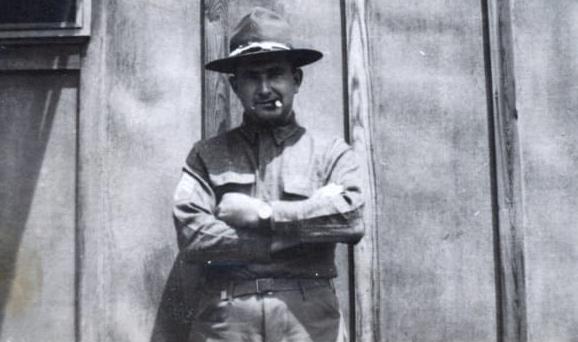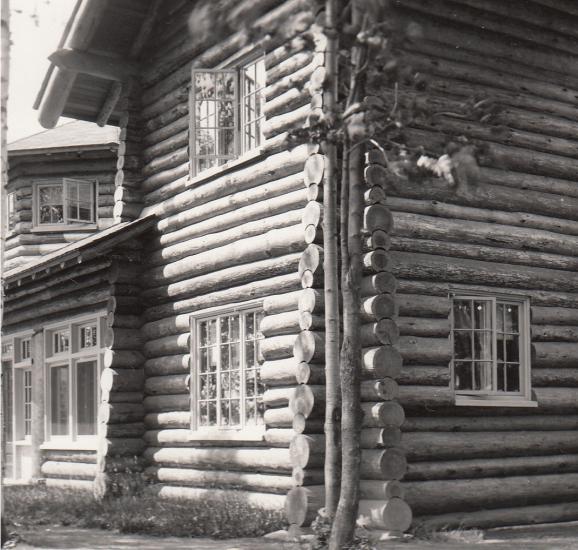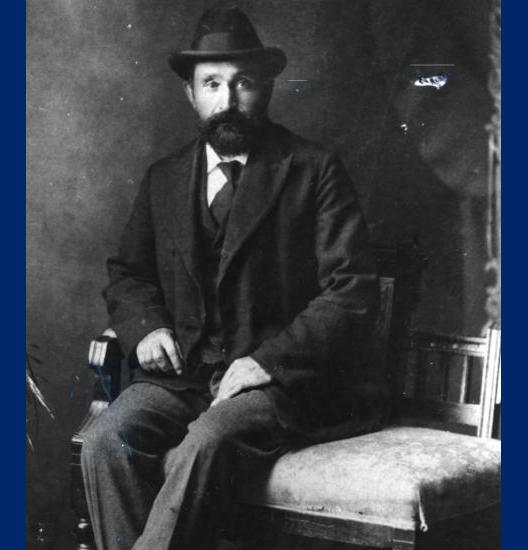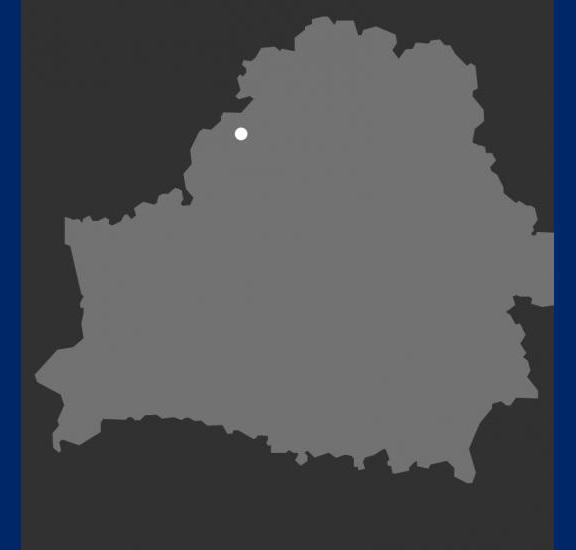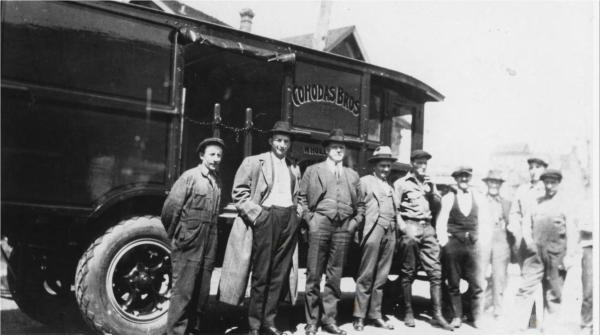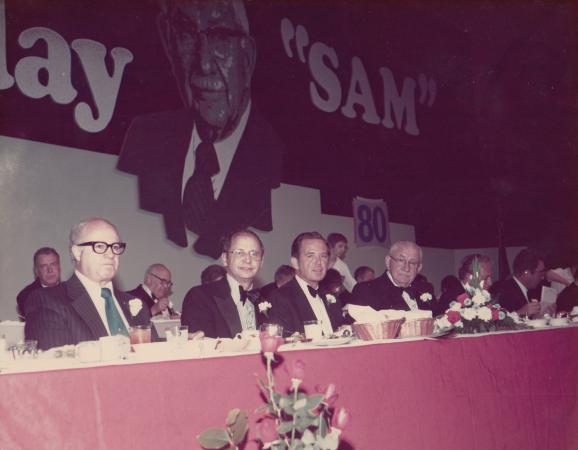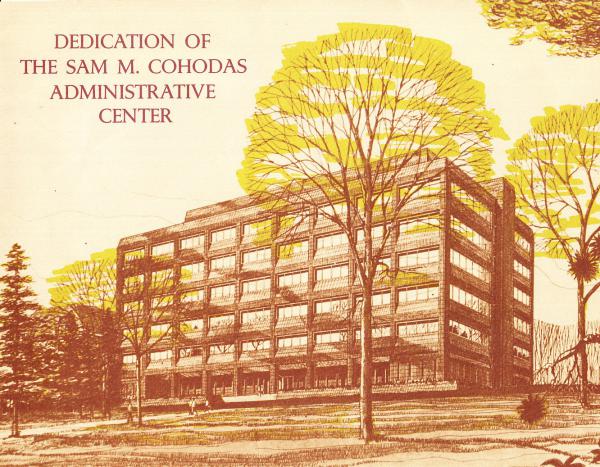Cohodas Family
The produce business was one the Cohodas family had been a part of for a very long time. Aaron Cohodas, like his father before him, sold produce in Kobylnik, a Russian controlled partition of Poland (now Narach, Belarus). He lived there with his wife Eva and their eight children. The Jewish communities in nineteenth-century Poland lived in terrible conditions forced into ghettos, victims of prejudice and under fear of pogroms and attacks. Relatives of the Cohodas family had already been making their way to America - Aaron’s brother Abraham came to Iron Mountain, Michigan, in 1898 and his brother-in- law Sam Weksler and his family to Marinette, Wisconsin, in 1893. In 1900, Aaron Cohodas took a freighter to America and went directly to Marinette, Wisconsin. Eva and the Cohodas children stayed in Poland selling produce until they had enough money to follow. The two oldest Cohodas sons soon emigrated to avoid conscription in the Russian army. In 1903, the Cohodas family had saved enough for Eva and the rest of the children - Molly, Leah, Harry, Sam, Anne, and Max – to come to America. The fare was $12 per passenger regardless of age. They arrived at Hudson River on August 17, 1903. According to records, their Hebrew names were Anglicized there. They took a train from Chicago, reached Marinette on August 19, and were reunited with Aaron and the two oldest sons, Hyman and Morris. There they happily exercised the right to own property and moved in to their first home on Raymond Street. All of the children, even the girls, were enrolled in school. Soon Eva was expecting and they joyously awaited the birth of the first in their family to be a natural born United States citizen.
Tragedy struck when on September 1, 1904, only a year after his family had joined him, Aaron Cohodas died of an infection after a surgery to correct mastoiditis. Eva refused county aid for her family from the Jewish leaders in Marinette. The older children who were still at home took on many jobs to support the family, their work ethic inspired by their mother, the life they could have in America and the memory of their father. Eva worked as a seamstress and caterer, Molly and Leah found jobs at the local department store and the children sold milk and eggs. Harry Cohodas was soon working for the Wisconsin produce business of his uncle, Sam Weksler.
In 1908, nineteen-year- old Harry and thirteen-year-old Sam left home and school to sell Weksler’s surplus produce around the Keweenaw Peninsula. This Copper Country produce gig would one day become the platform for the Cohodas produce venture. There was a brief interlude where Harry and Sam tried running movie houses but that endeavor did not last long. From those humble beginnings, and their entrepreneurial spirit, they decided to open their own Michigan based produce company and their markets spread. In 1919, the Harry and Max were in charge of the Copper Country stores and Hyman, Molly and Leah joined Sam to expand the produce business to Marquette County. The business grew all the way to the West Coast where they had orchards. By the 1950s, the Cohodas Bros was the third largest produce distributer in the U.S. All five brothers, and Molly and Leah helped with the growing family business.
Operations continued without Sam for a year when he enlisted in the army in 1918 during World War I, where he was in charge of many camp kitchens in the States. It was during this year that he became a U.S. citizen on June 12. Sam was mustered out in 1919. He lived in Chicago for a time before going back to Ishpeming where his mother and youngest sister, Ethel, resided. Ethel, after Anne, was the second Cohodas child to graduate high school and the first to go to college. Eva Cohodas died on February 13, 1931 after suffering a heart attack. Sam Cohodas died on April 1, 1988 at age ninety-two.
(Above) Sam Cohodas in the U.S. Army during WWI.
Cahodas family cabin on Lake Michigamme
Aaron Cohodas
Birthplace: Narach, Belarus
A famous landmark of the Cohodas family is the Cohodas Lodge. Built on Lake Michagamme, the lodge became host to the leaders of the produce industry and any Cohodas family reunion. Built from the pine and stone of the surrounding area, the lodge’s construction is a testament to old Finnish craftsmanship. It is now on the National Register of Historic Places.
At the outset of the Great Depression, Miner’s National Bank in Ishpeming closed. With a group of interested locals, Sam Cohodas took over reorganizing the bank and became president. In 1960, Cohodas bought Marquette’s First National Bank. Over the years, he continued to acquire more banks, which became the Michigan Financial Corporation. The corporation was purchased by Wells Fargo in 1999.
The whole of the Cohodas family is known for their charitable giving. Though humble and private in their generosity, many donations were made to Bay Cliff Health Camp, Bell Memorial Hospital in Ishpeming and Northern Michigan University, as well as other donations for academics, culture, and communities around the U.S. and Israel.
Sam Cohodas made a lasting impact on Northern Michigan University in many ways. In 1973, he made the largest donation ever received by NMU at the time, $250,000. In honor of his donation, the newly built administrative building was named after him, “Sam M. Cohodas Administrative Center,” now known simply as Cohodas Hall.
Cahodas Brothers delivery men and truck
80th birthday party for Sam Cohodas.
(Left to right) Dominic J. Jacobetti,
State Representative; John X. Jamrich,
President of NMU; William Milliken,
Governor of Michigan; Sam Cohodas.
Images courtesy of the Central Upper Peninsula and NMU Archives.
